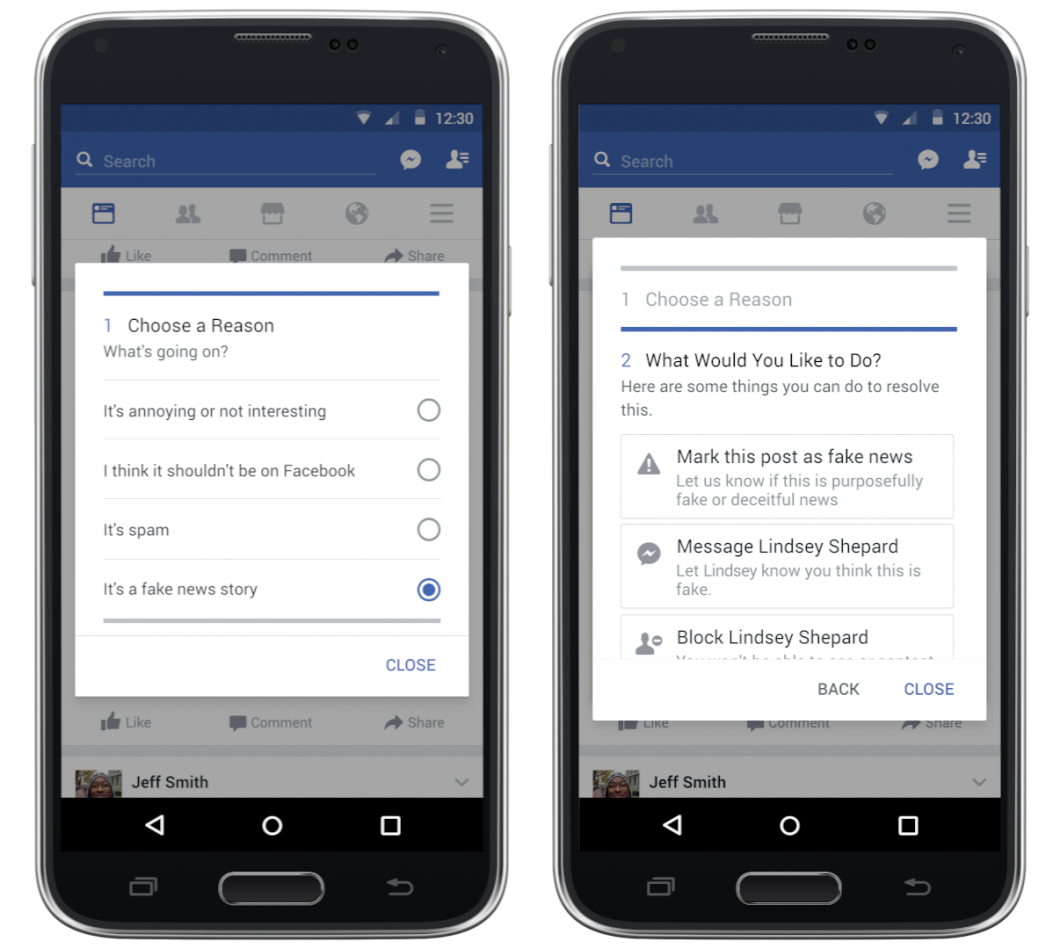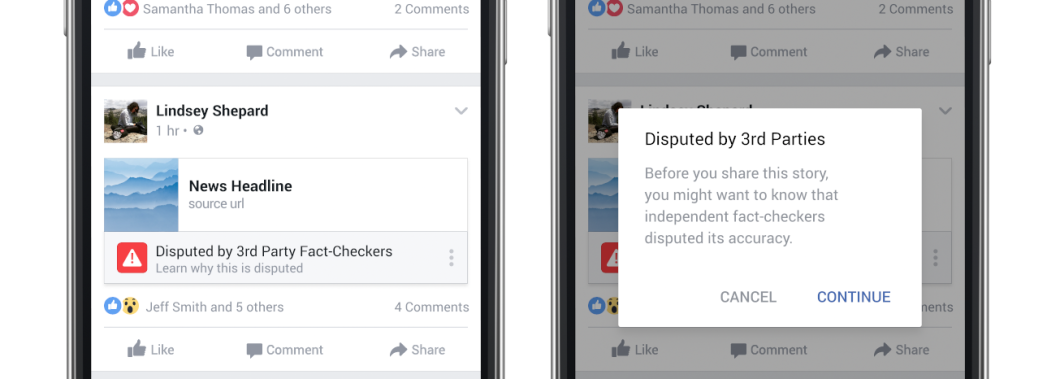Facebook To Work With Fact-Checkers, Let Users Flag Fake News Stories As “Disputed”
If you’re sick of seeing your friends from high school sharing outrageously untrue news items that are clearly hoaxes, or originally posted on websites with names like “HawtClikzNowAmerica!” or “biznoosclickstore.nz.bike,” you may soon have a new tool to help flag this sort of nonsense.
Today, Facebook revealed that it’s testing a handful of new ways to address hoax stories and fake news sites.
The social media giant got in hot water earlier this year when it was reported that the human editors curating Facebook’s trending news stories may have been injecting their personal political biases into their work. Amid that criticism and Facebook’s growing prominence as the primary online news source for a vast number of users, the company shifted to an automated method of curation, creating a system that has reportedly been easily gamed by creators of deliberately inflammatory fake news.
“We believe in giving people a voice and that we cannot become arbiters of truth ourselves, so we’re approaching this problem carefully,” explains Adam Mosseri, Facebook’s News Feed VP. “We’ve focused our efforts on the worst of the worst, on the clear hoaxes spread by spammers for their own gain, and on engaging both our community and third party organizations.”
The first test demonstrated by Facebook involves letting users flag a post as fake by simply clicking on the upper right-hand corner of the post and selecting “It’s a fake news story” from the options presented.

Given that this sort of flagging could also easily be gamed by users who have a grudge against a particular site, or who believe that any story they disagree with is fake, Facebook says it isn’t just using these reports to determine what is or isn’t questionable content.
“We’ve started a program to work with third-party fact checking organizations that are signatories of Poynter’s International Fact Checking Code of Principles,” writes Mosseri. “We’ll use the reports from our community, along with other signals, to send stories to these organizations. If the fact checking organizations identify a story as fake, it will get flagged as disputed and there will be a link to the corresponding article explaining why.”
For stories that are ultimately given the “Disputed” tag, there are consequences. These stories could be given less prominent positions in users’ news feeds, and users who share these stories will be alerted that they may be propagating a hoax.

For the content providers who post these Disputed stories, they won’t be able to pay to have a flagged item promoted or used as an ad.
The Facebook announcement doesn’t give a timeline for when these features will roll out, or how many users will be part of the test.
Want more consumer news? Visit our parent organization, Consumer Reports, for the latest on scams, recalls, and other consumer issues.

